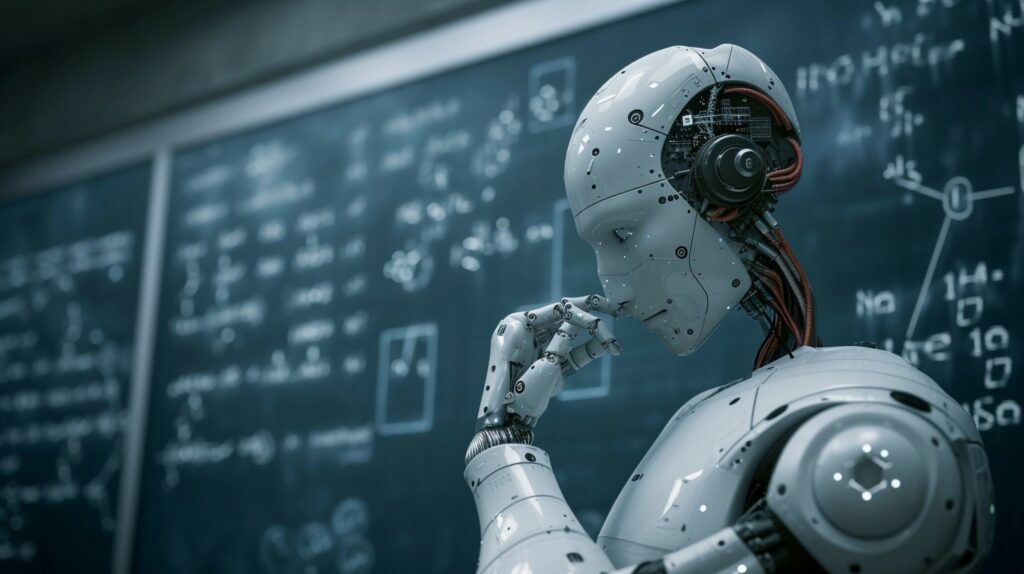
Google DeepMind and OpenAI’s artificial intelligence have achieved gold-level results in a competition dubbed the “Programming Olympics.” The companies’ models demonstrated a level of proficiency comparable to top competitors in the finals of the International Collegiate Programming Contest (ICPC), held in early September.
According to OpenAI, its latest model, GPT-5, solved all 12 problems, 11 of them on the first try. The company claims this result would have secured the system first place. DeepMind, meanwhile, reported that its reasoning model Gemini 2.5 Deep Think achieved the second-best result, solving a task that no human could have solved.
The ICPC Olympics is considered the most prestigious programming competition in the world. Google co-founder Sergey Brin and OpenAI chief scientist Jakub Pachocki have participated on several occasions. This year, 139 teams competed in the final, of which only four received the gold medal. Participants work in teams of three on a single computer and must solve twelve complex problems in five hours.
According to OpenAI, a combination of GPT-5 and an experimental reasoning model was used for the most challenging task. DeepMind trained its system using reinforcement learning methods, applying them to particularly complex mathematical and logical problems.
Unlike humans, the AI had a key advantage: it worked alone and had no problems coordinating in a group under pressure. As Barek Klin, a professor at the University of Oxford and an ICPC trainer, noted, mentors can only help students manage stress and work in teams, but they can’t explain the essence of the tasks to them.
DeepMind representatives emphasized that, while their system didn’t solve all the problems faced by some teams, it still provided a unique result that humans couldn’t have achieved. This, they believe, demonstrates how artificial intelligence can complement experts and push the boundaries of what’s possible.
DeepMind has already beaten humans in games and competitions, from chess to Go to the International Mathematical Olympiad. This summer, OpenAI also won gold in a mathematics.
Quoc Le, vice president of Google DeepMind, called these results “a historic moment on the road to AGI,” or artificial general intelligence. He noted that these findings could impact many scientific and engineering fields, including drug and microchip development.
Jelani Nelson, a professor at the University of California, Berkeley, added that just a few years ago, no one would have believed such a speed of progress. He emphasized that artificial intelligence was able to reach this level without human intervention.
Researchers believe that the success of artificial intelligence in mathematics and programming competitions is not only a demonstration of speed and accuracy, but also a step towards understanding the very nature of human thought.
Despite the extraordinary results achieved by OpenAI and DeepMind, the so-called vibe coding remains a controversial approach. Many developers have reported that the apparent speed of writing AI-generated code hides serious vulnerabilities, security issues, and even bugs dating back more than a decade. In several cases, companies have been forced to completely revise their projects, rewriting the code from scratch.
Some teams have already begun to address the issue, manually rewriting portions of software produced using these tools to ensure acceptable levels of quality and security. However, according to numerous industry professionals, the widespread use of vibe coding risks introducing more problems than it solves, leading to increased maintenance costs and significant development delays.
Precisely for this reason, there is a growing perception that the slowdowns caused by the forced integration of vibe coding offer no concrete benefits to the industrial cycle. Indeed, for some, they represent more of an obstacle than an advantage, undermining the true efficiency of the software production chain and opening a debate on the extent to which these technologies are actually ready to replace or complement human labor in secure development.
Follow us on Google News to receive daily updates on cybersecurity. Contact us if you would like to report news, insights or content for publication.
